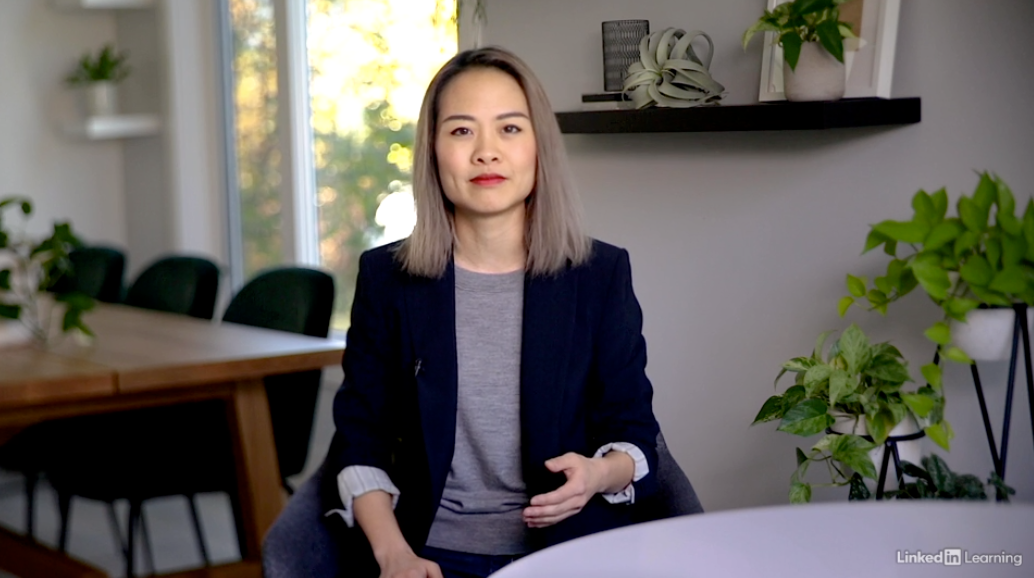Why Concise Is Powerful: Wes Kao on Communication, Confidence, and Founding Smart

“You don’t have to be a CEO to lead. Leadership is deciding to step up and drive something forward that wouldn’t have happened without you.” — Wes Kao
In a world flooded with performative leadership and LinkedIn soundbites, Wes Kao is the real deal.
Co-founder of Maven, architect of cohort-based courses, and a sought-after executive communication coach, Kao is helping redefine what it means to be a modern leader. In a riveting interview on Who We Are podcast (Ep. 39), she broke down how sharp judgment, intentional communication, and rigorous thinking can transform any professional—not just founders—into powerful, trusted leaders.
Here’s what every wantrepreneur and entrepreneur can learn from Wes Kao’s leadership philosophy.
1. Leadership Isn’t a Title—It’s a Decision
Wes Kao dismisses the old narrative that leadership is reserved for those with a C-suite badge. Instead, she defines leadership as taking ownership to drive progress others wouldn’t have initiated.
“Anyone can be a leader. It’s not about your title. It’s when you decide to step up and move things forward in a way that wouldn't have happened otherwise.”
This mindset is liberating for early-stage entrepreneurs. Don’t wait for a “perfect” product or investor validation. Start leading now—by taking action, owning your progress, and carving out value.
2. Want to Be a Better Leader? Sharpen Your Judgment
Kao emphasizes that what separates great leaders from mediocre ones is not charisma or credentials—it's judgment.
“So many people have 15 or 20 years of experience. But what really makes someone stand out is good judgment.”
Her prescription? Practice rigorous thinking—a framework of constantly interrogating your own assumptions. Ask yourself:
- What’s the hard part here?
- Where might I be wrong?
- Am I optimizing for the right outcome—or just staying busy?
And most importantly: close the loop. Kao recommends journaling key decisions and later analyzing how they turned out, so you refine your intuition and mental models over time.
3. Communicate with Precision, Not Just Brevity
Being concise isn't about fewer words—it's about greater clarity.
“Concise doesn’t mean short. It means dense with insight.”
Kao teaches that concise communication earns trust and attention—especially when people are distracted and multitasking. Want to stand out in meetings, pitches, or investor decks? Eliminate fluff. Replace vague phrasing with vivid specificity. And always frame your message around what the other person cares about.
This last point is crucial. Kao’s one non-negotiable?
“Frame your communication in terms of what the other person cares about. That one principle applies everywhere—in leadership, sales, parenting, everything.”
4. Avoid Accepting Negative Ideas—Even Subtly
One powerful micro-shift Kao teaches: stop unconsciously reinforcing negative narratives.
Phrases like:
- “I don’t mean to nag…”
- “Let me know if you have concerns…”
- “I’m not your enemy here…”
…can plant the very negative ideas you’re trying to avoid.
“Once you say something like ‘I’m not trying to avoid this,’ now I’m wondering if you are. Because you just put that idea into my head.”
Instead, reframe:
- "Let me know if you have questions" instead of "concerns"
- "I want to understand your perspective" instead of "I'm not trying to argue"
These subtle shifts create psychological safety and reduce unintended resistance.
5. Model Action Over Perfection
As a self-proclaimed “action-oriented warrior,” Kao knows the enemy of progress isn’t failure—it’s hesitation.
“I love this quote from Mike Tyson: ‘Everyone has a plan until they get punched in the mouth.’ You have to test your assumptions in the real world.”
Instead of perfecting a sales page in isolation, Kao ran live feedback calls with prospective students to learn what language resonated most. It turned her course launch into a collaborative success—and saved weeks of second-guessing.
Founders, take note: Launch fast. Get feedback. Iterate with intention.
6. Choose Productive Struggle, Not Just Any Struggle
In one of the most human moments of the interview, Kao challenges the idea that “struggle equals growth.”
“I used to believe all struggle was good struggle. Now I realize not all of it is useful.”
Her mantra: “Be the me-est me.”
As you grow as a founder or creator, ask: Does this challenge align with how I’m wired? Am I choosing battles that stretch me in the right ways—or just because I feel like I “should”?
7. Speak with Accuracy, Not Just Optimism
In times of uncertainty, leaders often default to sugarcoating—or catastrophizing. Kao argues for a third way: speak with grounded accuracy.
Don’t say, “This will definitely succeed.”
Instead, say: “We’re pulling every lever to increase the chances of success.”
That’s how you build trust—without making promises you can’t keep.
Final Takeaway: Lead with Intention, Speak with Impact
Wes Kao’s leadership ethos isn’t about charisma or hustle porn. It’s about intentionality—of thought, action, and words. For early-stage entrepreneurs, that’s a powerful blueprint.
You don’t need to wait to lead. You don’t need to wait to communicate clearly. And you certainly don’t need to wait to be the you-est you.





